Meet the researcher
Watch the videos and read the text below to find out more about the researchers participating in Meet the Researcher this academic year. You can also read which programmes they are available to meet students from.
Researcher BIOs for Psychology & Psychology and Language Sciences students
- Adam Parker
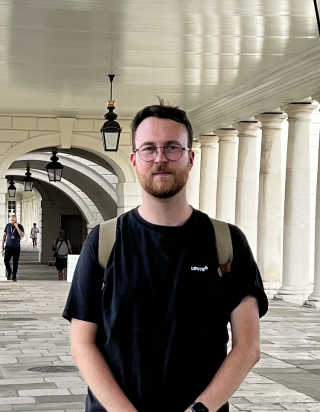
Now, more than ever, we are required to rapidly read and understand a growing amount of written information. This ability is integral to work, leisure, social interaction, and personal advancement so understanding fluent, skilled reading is of vital importance as this will ultimately help us uncover ways in which we can support those who struggle. My research employs eye-tracking technology to examine the cognitive processes underlying reading and looks at how text- and reader-level properties influence sentence reading in real-time. My work currently focuses on topics such as (1) how language processing during reading is influenced by line boundaries and (2) how readers use recent experiences with word-meanings to support reading comprehension.
- Antonia Hamilton
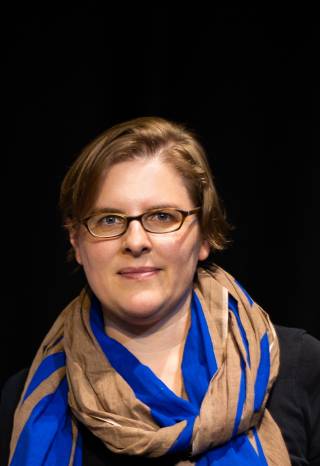
Face-to-face social interaction is central to human relations – a mother playing with her baby, a couple in love or a political debate all work best when the people are face-to-face in the same room. My lab studies the neural and cognitive mechanisms which support social interaction in adults (and sometimes children) including some people with autism. To do this, we use motion trackers and wearable brain imaging systems to capture the detail of real-world social behaviour and relate it to cognitive models. We aim to understand how people imitate each other, make eye contact, learn from each other and communicate without words.
- Bencie Woll
YouTube Widget Placeholderhttps://www.youtube.com/watch?v=BwsQ9Slh3TE I study the communication of deaf people as a model for understanding language, cognition, and the brain. My research includes studies of spoken and signed language acquisition, linguistic and sociolinguistic research on sign languages, functional imaging of signed and spoken language processing by deaf and hearing people, and developmental and acquired sign language impairments.
- David Vinson
YouTube Widget Placeholderhttps://www.youtube.com/watch?v=wPlsONMdTK8 My research focuses on the meaning of words but also the additional non-verbal cues like gestures, facial expressions, etc and how we express them and understand them. My research uses a combination of psycholinguistic experiments, computational modelling, functional magnetic resonance imaging (fMRI) and transcranial magnetic stimulation (TMS).
- Elizabeth Pellicano
- Ever since I was an undergraduate student – too many years ago now – I have studied autism. I am particularly interested in trying to work out how the autistic people might be able to lead easier, better lives: the kinds of lives where they are able to achieve their own goals, like having a secure job, being healthy and happy, keeping friends and building a family. My research challenges the negative view that exists in far too many places that autism is inevitably a “problem” and that autistic people themselves have somehow to be “changed” if they are to lead rewarding lives. I believe instead that good research has shown that it is often the world that needs to change, and not autistic people themselves. I am always excited to meet new and prospective students who share this passion for contributing to the lives of autistic people, and others who face injustice and disability, whether they focus on Psychology, Psychology and Language Sciences or other disciplines.
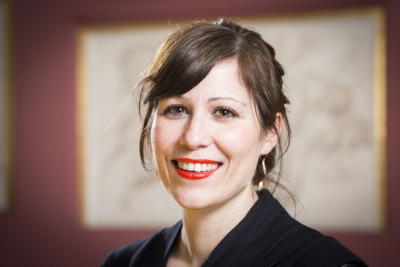
- Fiona Kyle
- My research focuses on how children develop their literacy, language and cognitive skills. In particular, I am interested in how deaf children learn to read and spell and the cognitive correlates of reading success including speechreading, vocabulary and phonological skills. My work explores how different language experiences and backgrounds (use of spoken language, sign language or cochlear implant) shape deaf children’s literacy outcomes and underlying processes.
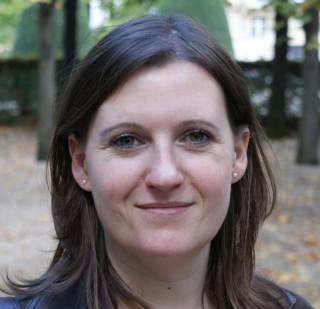
- Fred Dick
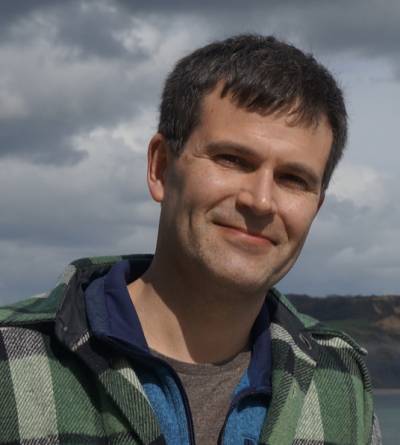
Our work primarily focuses on the ways that humans and other mammals are able to use sound to understand the world around them, and also to produce and use sound to communicate. In particular, we ask how the auditory brain is structured - and restructures itself - to accomplish this task, and how we learn to pay attention to different aspects or 'dimensions' of sound properties. Our lab uses multiple methods including behaviour, electroencephalography, and MRI to answer these questions; we often use training paradigms in children and adults to understand auditory and language learning, and also ask questions with the help of 'auditory experts' like musicians.
After spending the first half of my life as a musician, I went back to train up as a cognitive scientist, first as a 'special student' for a year with Morton Ann Gernsbacher at the University of Wisconsin-Madison, then as a PhD student with Liz Bates and Jeff Elman in the Dept of Cognitive Science at the University of California - San Diego. After several happy years there, I had a brief postdoc with Steve Small at the University of Chicago Hospitals before moving to Birkbeck College as a lecturer (assistant professor) in Psychological Sciences. Shortly after, I became acting director of the yet-to-be built (or even named!) Birkbeck/UCL Centre for NeuroImaging (BUCNI), and then was lucky enough to work with my former UCSD mentor Marty Sereno for many years when he became BUCNI director. After Marty left these shores to return to sunny San Diego, I became BUCNI director and also moved to UCL half-time. I completed the full move to UCL this year in 2022 and am now based in the Dept of Experimental Psychology in PALS. I continue to co-direct the AlphaLab (Auditory Language Perception Hearing and Attention Lab) with Adam Tierney, and also continue as a member of the Centre for Brain and Cognitive Development.
- Jennifer McGowan
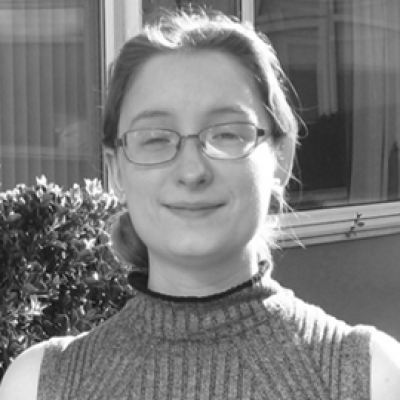
Jennifer McGowan is an Associate Professor (teaching) for Experimental Psychology. She has a PhD in health psychology and epidemiology, and is a senior fellow of the Higher Education Academy. Her teaching role includes coordinating the external placements of MSci students into clinical and industrial settings, lectures on quantitative and qualitative research methods, Learning and memory, Ageing, Mindfulness, and Adolescence. She also facilitates journal clubs, and is dedicated to inclusive and interactive learning.
Jennifer is the founder and lead of the global Resilience Research Group. The group’s aim is to develop a collaborative group of resilience researchers, in order to develop high quality resilience research. This includes developing research and dissemination opportunities to raise member profiles, supporting early career researchers into funding, and developing and consolidating the resilience field. We also work with local councils to evaluate resilience interventions.
Her research interests are focused primarily on health and positive psychology. I am interested in projects into:
- Positive psychology, resilience, and physical well-being
- Public health (well-being, smoking, cancer, sexual well-being, lifespan ageing)
- Sexual well-being in regards to abnormal sexuality
To date her research has explored the biopsychosocial well-being of adults ageing with HIV in relation to both age and time with diagnosed HIV; cancer and smoking; adolescent health and well-being; and the evaluation of resilience interventions in clinicians and schools.
- Joshua Stott
- Developing and testing psychosocial interventions for people with dementia and their carers:
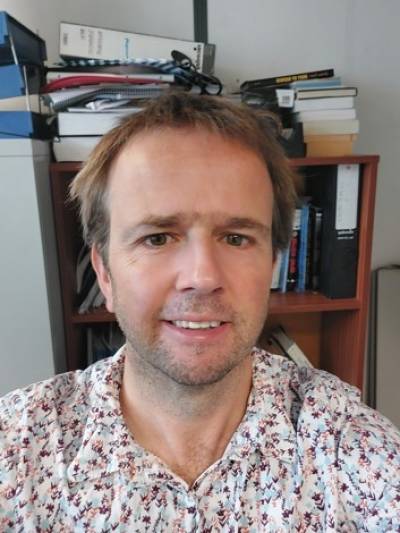
I have developed a number of in person talking therapy approaches as well as online packages to support people with dementia and their carers and reduce the distress they experience. I have a number of grant funded projects related to my interest, including a large randomised control trial looking at the World Health Organisation’s online tool for dementia carers, iSupport. Dementia refers to a number of different conditions that affect the brain and I have a particular interest in supporting people with less common causes of dementia as these are often not properly diagnosed, and when they are, services are unsure how to help people living with these conditions or their carers. To address this, I have a large upcoming project that will test several different online education programmes for people living with and caring for people with these rarer dementias. My work on these psychosocial interventions for people affected by dementia is important and my research in this area is used to inform clinical practice across the UK and internationally.
Using existing healthcare records data to answer important questions related to health outcomes.
I have several projects related to this. In one of these, the MODIFY project I have created a very large dataset (n=2 million) of psychological therapy outcomes data for people with anxiety who also have a comorbid physical health condition. I have used this dataset to conduct the first studies looking at whether effective psychological therapy may lead to reduced future risk of later dementia and heart disease as well as whether people living with dementia can benefit from routinely provided psychological therapy. Separately, in the AUDIT-50 project I have used GP records to identify the huge underdiagnosis of autism in older adults in the UK. The results from my healthcare records data work is being discussed with NHS England (who oversee healthcare in England) to think about how we might change healthcare in England because of it.
Dementia risk reduction.
Recently there has been a focus on reducing risk of dementia in late life by changing risk factors presenting earlier in life. I have done a number of studies looking at this, for example my team identified that living alone may increase your risk of dementia by around 4% and that positive mental health earlier in life could lead to lower risk of dementia later in life. This work feeds into a number of projects that are developing tools to reduce dementia risk.
- Leslie Gutman
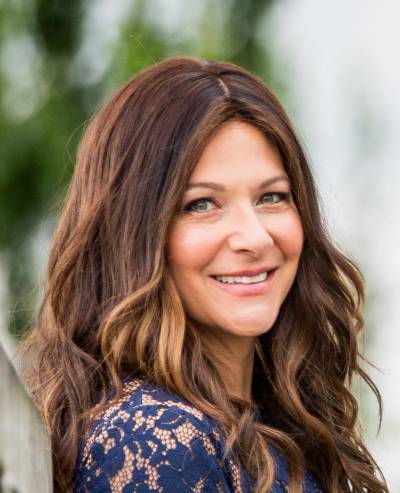
I am interested in mental health and wellbeing, and their course of development for different groups including gender, ethnicity and their intersection. I also use behaviour change tools to examine the influences on mental health behaviours and how we might improve mental health promotion and intervention. Evidence suggests that mental health problems are increasing, so this research contributes to our understanding of how we can better meet individuals’ mental health needs. I am especially interested in co-production, where people with lived experience of mental health difficulties contribute to research. My research focuses primarily on young people; most recently, I have been investigating the use of digital mental health support such as helplines, web-based and text-based counselling and online discussion forums for young people and how we can improve their reach and delivery. As BAME Awarding Gap Project Lead (Brain Sciences), I also seek to develop and implement strategies to eliminate the awarding gap and improve inclusivity and belonging at UCL.
- Mairéad MacSweeney
- I use both behavioural and neuroimaging approaches to further understand how we process visual forms of communication: sign language, reading and visual speech (lipreading). Most of this research is conducted with deaf adults and children. In addition to informing our understanding of how the brain processes language, regardless of whether it comes in via the eyes or the ears, some of our research can also be used to inform educational interventions for deaf children.

- Patrizia Pezzoli
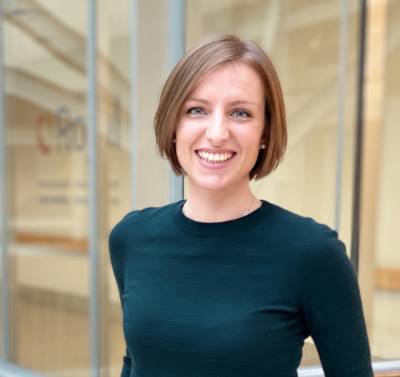
My research aims to improve our understanding of interpersonal violence and its relation to mental health. I am especially interested in elucidating the risk factors and mechanisms that may contribute to individual differences in victimization and offending. I mainly use methods from behavioural genetics to do so. This work is important as it can indicate why some people are more likely than others to experience and/or to perpetrate violence, how cycles of violence can emerge and persist over time, and how we may go about interrupting them.
- Sam Gilbert

My research uses experimental psychology and neuroscience methods to understand the ways that we control and organise our behaviour. For example, how do we remember to do the things we intend to do, and why is it so easy for intentions to slip our minds? I am particularly interested in the way that people ‘offload’ their intentions into external reminders and devices like Siri and Alexa. Understanding these processes can help us to optimise our use of technology.
- Samuel Solomon

I study the activity of brain cells in parts of the brain that are important for vision – and have measured activity in many parts of the brain, from the retina through several areas of the cerebral cortex (I like to think that I have made measurements from more visual brain areas than anyone ever has, though this is probably not true). The type of research I do seeks to answer questions about the function of brain cells and brain networks – that is, how the activity of these cells supports behaviour, including perception and cognition. The main questions we are interested in are (1) what aspects of brain activity are important for behaviour, (2) are the functions of brain cells fixed, or do they change with experience (and if so, how), and (3) how degenerative disorders (like Alzheimer’s Disease) change these functions.
We still know very little about the relationship between brain activity and behaviour, in healthy brains, or in disease. By studying the visual system of the brain, we hope to gain better understanding of what ‘makes us tick’ (with implications for other brain functions as well as vision), and to help work out how to detect the presence of brain dysfunction at early stages of disease, when it may still be treatable.
Recent technical advances mean that we can study the function of the brain in ways that were unimaginable even 20 years ago. We can measure from many brain cells simultaneously, we can stimulate particular brain cells with high precision, and we can trace their connections throughout the brain. We are finally in a position to answer questions like: ‘how do we see?’ and ‘how do we choose a particular action?’ I therefore hope that our studies will help shed light on what, precisely, is happening in our head. More pragmatically, I am excited by our recent work on understanding the impact of brain disease. Although we have known how brain diseases change the structure of the brain for many decades, we still know very little about why or how these diseases affect perceptions and cognition, or even how they change the basic function of brain cells. If we knew this better, I think we would also be in a better position to detect the presence of disease, and – hopefully - improve treatments.
- Sarah Garfinkel
- My research is interested in emotion, and how emotion is represented in both the brain and the body. I focus on the heart and investigate heart-brain interactions, and something called ‘interoception’ which is the sensing of internal signals. Internal signals, such as those from the heart, can influence our emotions, our decisions, and our memories. When trying to understand mechanisms that are altered in different clinical conditions such as anxiety, autism and schizophrenia, understanding aberrant bodily processing can provide new insights into these conditions. My work is fully translational, I study basic mechanisms and identify alterations in different clinical conditions to devise new insights for therapeutic interventions.
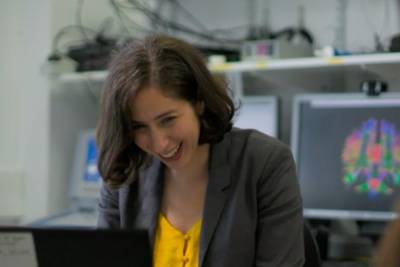
- Vitor Zimmerer
- I study the language profile of neurological disorders such as dementia, stroke aphasia and schizophrenia. Language capacity is very sensitive to neurological change and is therefore an important marker of damage, degeneration or alterations in the neurotransmission. Linguistic assessments can help with diagnosis and tracking of neurological change over time, for example as a response to intervention. I pay particular attention to lexical and grammatical processing, and have developed new methods with the aim to improve clinical procedure.
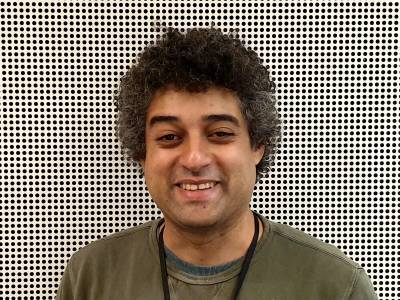
- Gabriella Vigliocco
YouTube Widget Placeholderhttps://youtu.be/juMa-iU8MMg My research concerns how humans mentally represent and learn knowledge about the world and how they communicate about this. We study these questions looking at children, adults and patients and using methods such as recording reaction times in behavioural experiments and imaging of the neural networks involved.
Researcher BIOs for Psychology and Language Sciences students only
- Bronwen Evans
YouTube Widget Placeholderhttps://www.youtube.com/watch?v=ZxcAwShwqW8 Ever wondered why Glaswegians are hard to understand, why call centres are based in Inverness or why Saturday night TV is dominated by Geordies? My research focuses on variation in speech, addressing how listeners are able to understand speech despite variation, and how and why speakers adapt their own speech when interacting with others.
- Jo Taylor

My research investigates the way we learn to read, in particular how we learn the relationship between a word’s spelling and its sound and meaning. I often use artificial language learning methods, in which participants learn to read made-up words, sometimes written in unfamiliar alphabets. This enables me to simulate what it's like for children learning read words for the first time or how adults learn a foreign language. I use neuroimaging methods to look at how our brains represent words and am interested in how different factors affect learning, for example, how difficult the spelling-to-sound relationships are, how meaningful the words are, or the method we use to teach people.
- Steve Pilling
- My research interests include: health services research, including trials of complex interventions such as crisis intervention teams and implementation studies of health service policy initiatives; psychological treatment, in particular treatments for depression and the competencies required to deliver effective interventions for all psychological treatments and disorders; systematic reviews in mental health and their use in clinical guidelines; clinical guideline development and implementation in mental health.
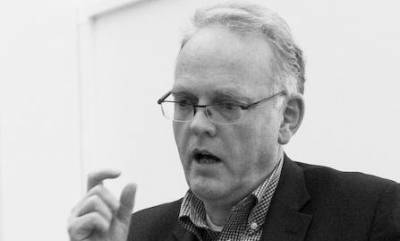
Researcher BIOs for Psychology students only
- Amanda WIlliams
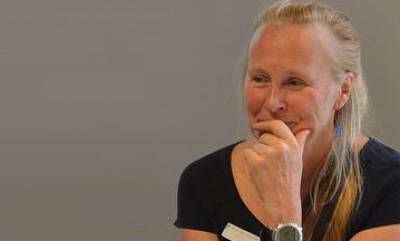
My research interests are all around pain, which is not just a physical event, or a sensation: it is also an emotional event – if it were not unpleasant and aversive, it would not be pain. I work on psychological treatments for pain, understanding visceral pain, evolutionary modelling of pain-related behaviour, pain from torture, and the use of digital technology to support self-management in chronic pain.
- David Shanks
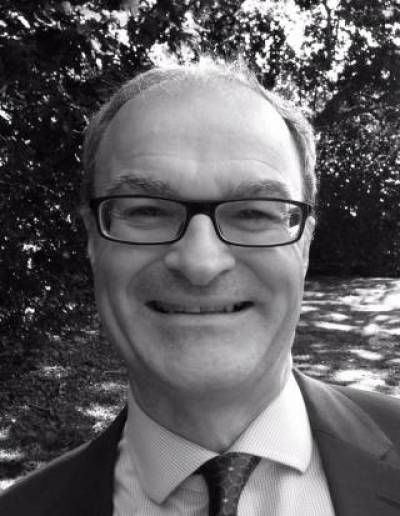
I conduct research on human learning and memory. A particular focus is on the benefits of taking quizzes/tests for consolidating learning. We study some of the properties and explanations of these testing effects, as well as metamemory – what we know (or think we know) about our own learning and memory.
- David Tuckett
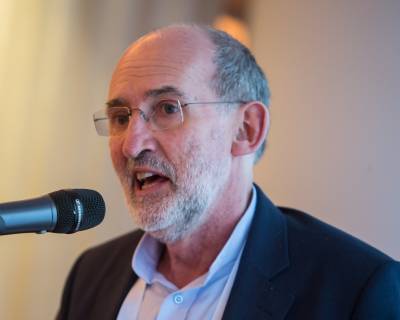
David Tuckett is a psychoanalyst with training in economics and sociology, who is an Emeritus Professor of Decision-Making at UCL.
His research around Conviction Narrative Theory explores how real-world decisions differ in many ways from those studied in laboratories and textbooks. We must often make massively consequential choices when, whether we know it or not, data is incomplete, the options are ambiguous, the future may not resemble the past, and the axioms of standard decision theory are not satisfied. Such decisions often require both commitment and flexibility over time. Above all, such decision-making is about taking action in the face of potentially paralyzing uncertainty. While choices like monetary gambles may be amenable to standard analyses, it is far less clear how career choices, climate change, pandemic mitigation, and most government policy can be effectively understood in this way. Conviction Narrative Theory is a theory of decision-making that sets out how human cognitive, affective and social capacities are well adapted for such decisions and identifies the implications for research and decision-makers.
- Johnson, S., Bilovich, A., & Tuckett, D. (2022). Conviction Narrative Theory: A Theory of Choice Under Radical Uncertainty. Behavioral and Brain Sciences, 1-47. doi:10.1017/S0140525X22001157.
- Fenton O’Creevy, M and Tuckett, D (2021) Selecting futures: the role of conviction, narratives, ambivalence, and constructive doubt. Futures & Foresight Science. https://doi.org/10.1002/ffo2.111
- Nyman, Rickard, Tuckett, David and Kapadia, Sujit (2021) News and narratives in financial systems: exploiting big data for systemic risk assessment. Journal of Economic Dynamics and Control. June 2021. https://doi.org/10.1016/j.jedc.2021.104119.
- Collier, Paul and Tuckett, David (2021) Narratives as a Coordinating Device for Reversing Regional Disequilibrium. Oxford Review of Economic Policy. (Spring) doi:10.1093/oxrep/graa060 Preprint at https://www.rebuildingmacroeconomics.ac.uk/narratives-regional-disequilibrium
- Tuckett, David, Holmes, Douglas, Pearson, Alice and Chaplin, Graeme.(2020) Monetary policy and the management of uncertainty: a narrative approach. Bank of England Staff Working paper No 870. June 2020. https://iris.ucl.ac.uk/iris/publication/1790325/1
- Duncan Brumby
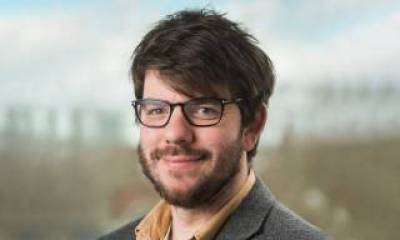
My research is concerned with understanding people's use of computers. I’ve focused on four things: (1) driver distraction and mobile phone use in the car, (2) how people manage digital interruptions at work, (3) the use of devices in the home for TV watching, and (4) how people find what they are looking for on a screen.
- Essi Viding
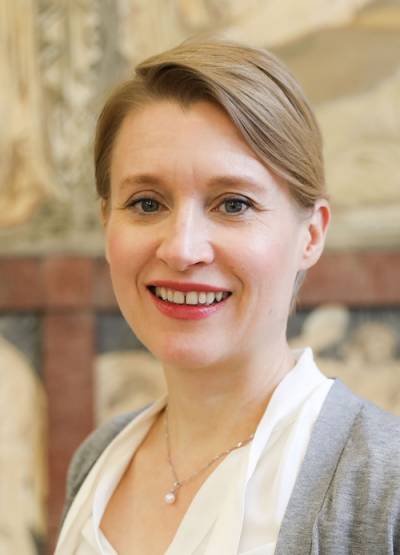
I research why some children develop antisocial behaviour and psychopathic traits, as well as the development of children and young people’s mental health problems more broadly. I lead UCL’s Children and Young People’s Mental Health Research Strategy. This is an important area of research, as we want to be able to prevent and treat mental health problems before they escalate and become chronic. I use multiple different methods in my work, including genetically informative designs (which are also important as we try to understand environmental risk!) and brain imaging. Multiple risk factors predispose people for the development of mental health problems and we will not be able to gain a better understanding of why some people are at a higher risk than others, if we do not triangulate with different approaches.
- Glyn Lewis
YouTube Widget Placeholderhttps://youtu.be/JFhLXPpzkhI People who have experienced stressors in their life are more likely to develop depression. These stressors include bullying, earthquakes, deployment to war and bereavement. I am interested in why individuals vary so much in how they respond to stressors. I also investigate the effectiveness of psychological and pharmacological treatments for depression using randomised controlled trials based in primary care.
- Helene Joffe
- My research covers how people conceptualise, respond to and recover from various risks, as well as the liveability of cities. I have led a wide range of multi-disciplinary research projects. One current, large project is on how to foster resilient recovery from disasters such as earthquakes and tsunami. I have also looked at loneliness among young people, particularly those living in deprived urban areas. Beyond psychological and social factors, features of places can impact people’s wellbeing and so I work with city planners to figure how to change aspects of city design, in addition to the psycho-social conditions of those living within cities, to improve wellbeing.
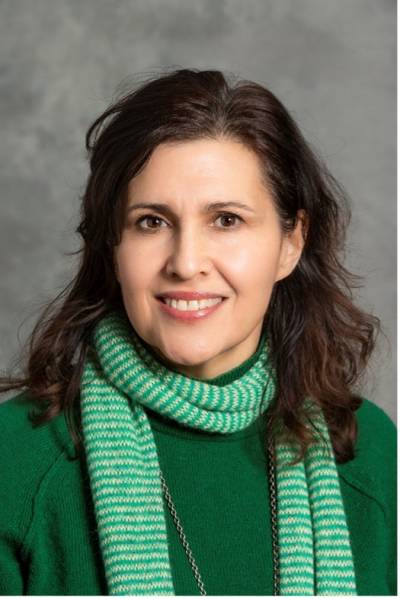
- James Kirkbride
YouTube Widget Placeholderhttps://youtu.be/2ylx1VmHoYY My research is in the field of psychiatric epidemiology. Epidemiology is a discipline that investigates the causes of disease at a population level. I apply epidemiological and statistical methods to large datasets of people with mental health conditions, such as schizophrenia, to discover whether there is a link between our environment and our risk of developing mental health disorders.
- John Greenwood
YouTube Widget Placeholderhttps://youtu.be/AfQPFiCz9oA Research in my lab examines visual perception: the way we see the world. We do so using mostly behavioural techniques, known as “psychophysics”. One focus is visual crowding: in your peripheral vision, objects can be highly visible in isolation but become extremely difficult to identify when surrounded by clutter.
- John King
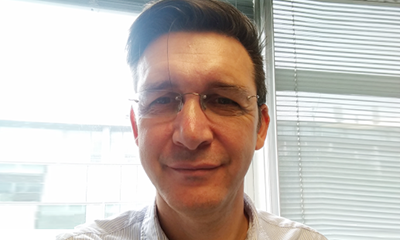
Meet the researchers: John King
Mental health disorders, such as depression and anxiety, involve problems in the way memory functions. We use techniques including brain imaging, electrophysiology and virtual reality to investigate memory processes in healthy and unwell people. By understanding how these processes fail, we aim to find new ways to improve mental health.
- Lasana Harris
YouTube Widget Placeholderhttps://youtu.be/LQILo0iqu0I My research investigates social cognition, that is, our ability to think about the minds of others. I study the boundary conditions of this phenomenon, such as when we extend social cognition to things that do not have minds (anthropomorphism) and when we withhold it from people (dehumanisation). I address legal, economic, and medical decision-making related to this phenomenon, blending philosophy, evolutionary anthropology, developmental, cognitive and social psychology with neuroscience to explore the brain correlates of this most human ability.
- Mary Hepworth

My research has taken several lines of approach to the questions of (a) what, within early development, can cause vulnerabilities to mental health problems or personality disorder, (b) can the developmental concepts of attachment and ‘theory of mind’ be measured in valid ways, for use in therapy process and outcome research, , and (c) what approaches to therapy for child or adolescent mental health issues work, and can they be improved? Increasingly my interest has shifted from large outcome studies to smaller scale qualitative interview studies, where the subjective experiences of illness and therapy can help us to understand treatment outcomes for young people.
- Nick Midgley
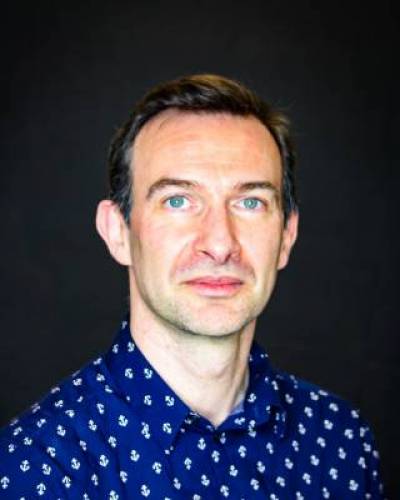
I'm the co-director of the Child Attachment and Psychological Therapies Resaerch Unit (ChAPTRe) at UCL and the Anna Freud Centre. Most of my research is involved with developing and evaluating psychological therapies for children and young people, including treatments for depressed adolescents and for children in foster care. I'm a mixed-methods researcher, with a passion for involving young people and service users in research.
- Peter Fonagy
YouTube Widget Placeholderhttps://youtu.be/PDuaaAPv07M My research work has largely focused on the integration of psychodynamic theoretical and clinical work with empirical research strategies in the areas of early emotional development and psychosocial treatment research, engaging specifically with severe personality pathology. I co-developed mentalization-based treatment, an innovative research-based dynamic therapeutic approach. I am also engaged in a major collaborative programme exploring developmental psychopathology from an attachment-mentalization perspective.
- Steve Fleming

Our cognitive neuroscience lab is based at the Department of Experimental Psychology and Wellcome Centre for Human Neuroimaging. We focus on understanding how the human brain supports self-awareness and metacognition, and how these processes are altered in disorders of mental health. Metacognition refers to the ability to reflect on, monitor and control other cognitive processes. By designing novel experiments we aim to deconstruct metacognition into its component parts, such as how we recognise our errors, becomes aware of internal states, and develop beliefs about our skills and abilities. We combine theoretical models with a range of behavioural and cognitive neuroscience approaches including functional and structural MRI, TMS, M/EEG and eye tracking.
- William Mandy
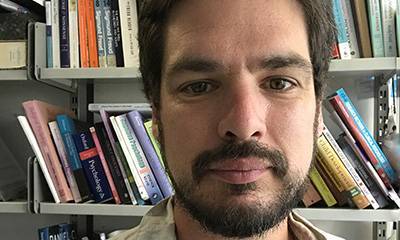
Meet the researcher: Will Mandy
My work aims to improve the recognition of autism and to develop new interventions to help autistic people. I have a particular research interest in improving the identification and care of females on the autism spectrum, who are currently at high risk of going unnoticed and unhelped by clinical and educational services.
 Close
Close

